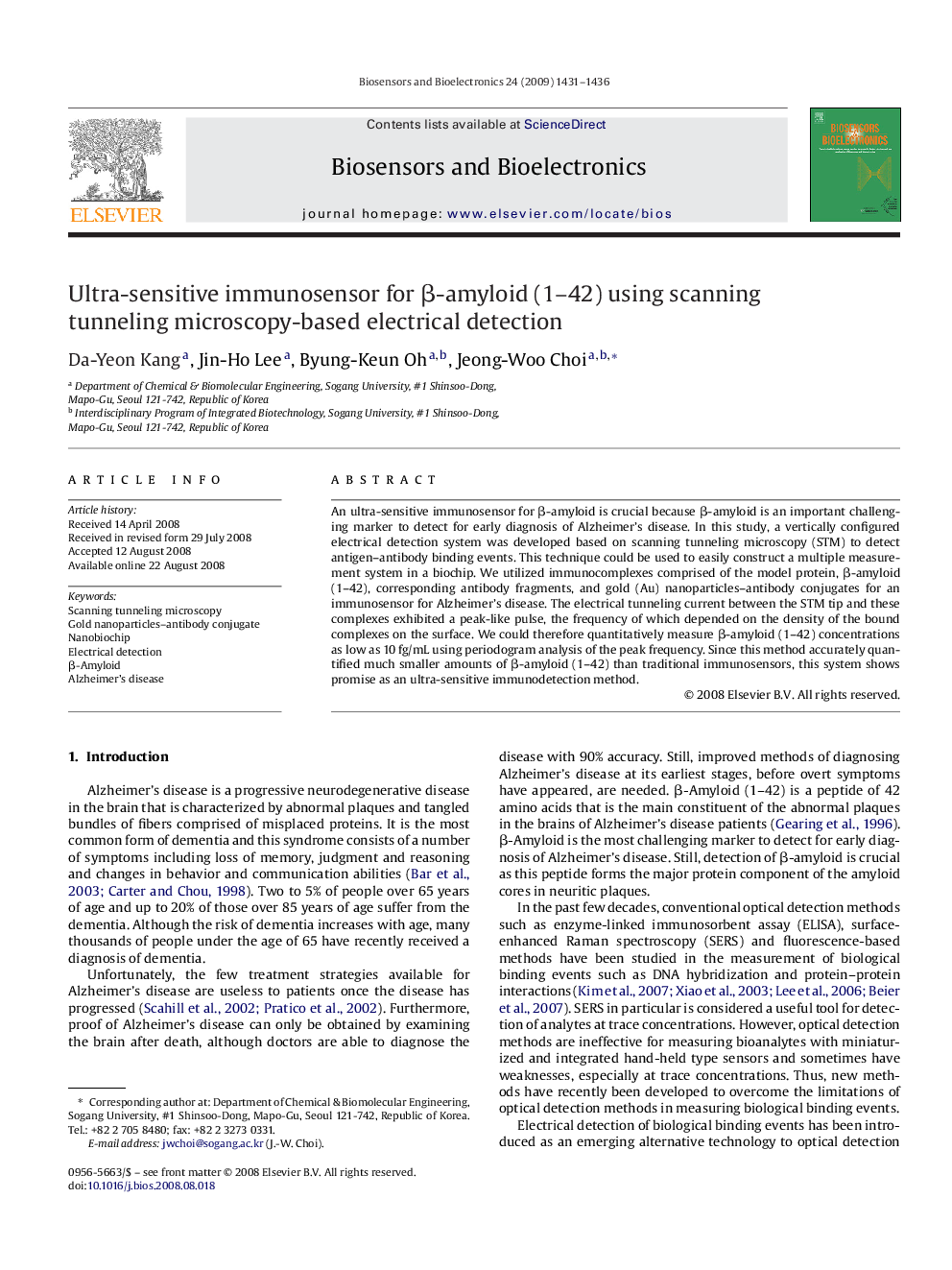| Article ID | Journal | Published Year | Pages | File Type |
|---|---|---|---|---|
| 868892 | Biosensors and Bioelectronics | 2009 | 6 Pages |
An ultra-sensitive immunosensor for β-amyloid is crucial because β-amyloid is an important challenging marker to detect for early diagnosis of Alzheimer’s disease. In this study, a vertically configured electrical detection system was developed based on scanning tunneling microscopy (STM) to detect antigen–antibody binding events. This technique could be used to easily construct a multiple measurement system in a biochip. We utilized immunocomplexes comprised of the model protein, β-amyloid (1–42), corresponding antibody fragments, and gold (Au) nanoparticles–antibody conjugates for an immunosensor for Alzheimer’s disease. The electrical tunneling current between the STM tip and these complexes exhibited a peak-like pulse, the frequency of which depended on the density of the bound complexes on the surface. We could therefore quantitatively measure β-amyloid (1–42) concentrations as low as 10 fg/mL using periodogram analysis of the peak frequency. Since this method accurately quantified much smaller amounts of β-amyloid (1–42) than traditional immunosensors, this system shows promise as an ultra-sensitive immunodetection method.
